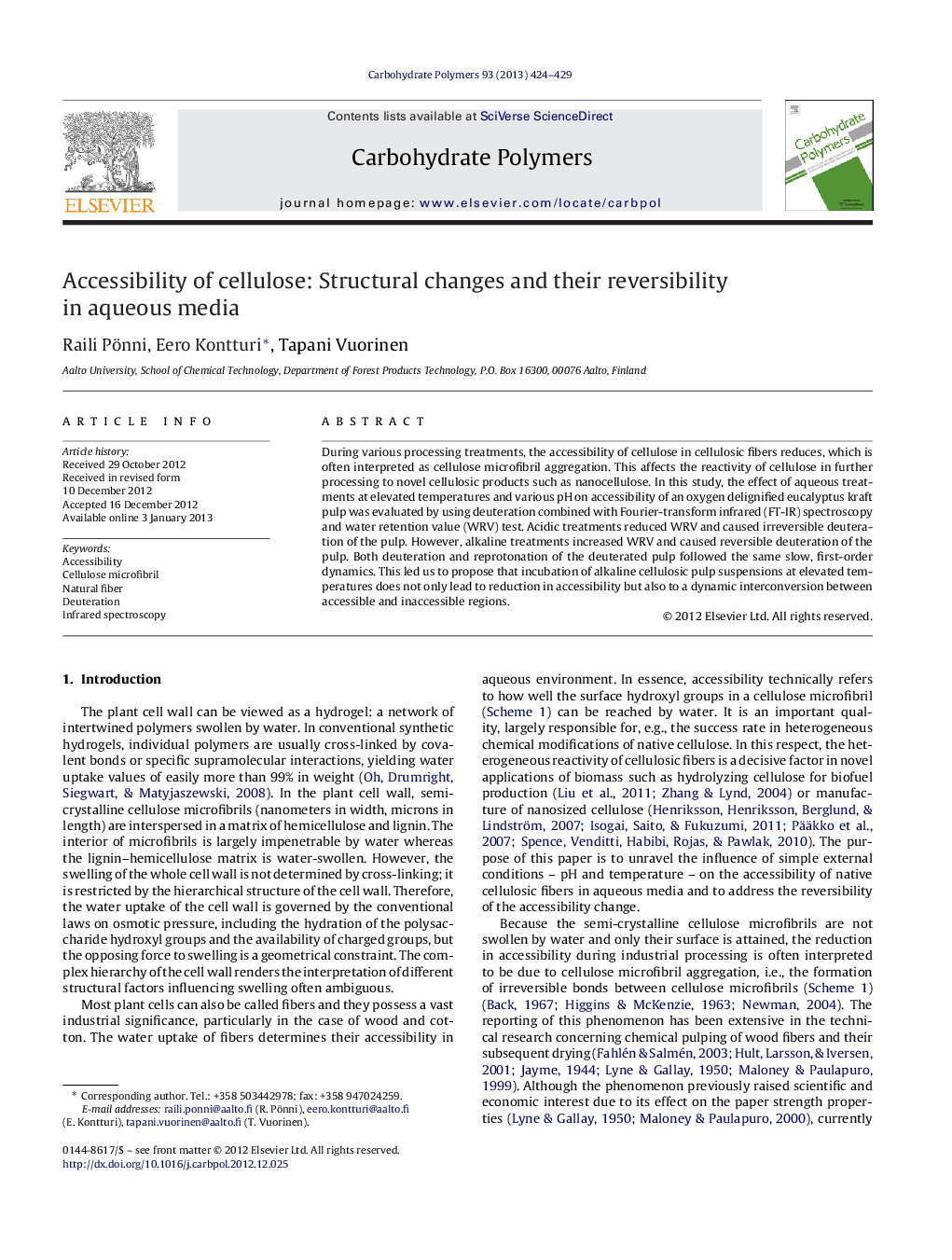| Article ID | Journal | Published Year | Pages | File Type |
|---|---|---|---|---|
| 1384345 | Carbohydrate Polymers | 2013 | 6 Pages |
During various processing treatments, the accessibility of cellulose in cellulosic fibers reduces, which is often interpreted as cellulose microfibril aggregation. This affects the reactivity of cellulose in further processing to novel cellulosic products such as nanocellulose. In this study, the effect of aqueous treatments at elevated temperatures and various pH on accessibility of an oxygen delignified eucalyptus kraft pulp was evaluated by using deuteration combined with Fourier-transform infrared (FT-IR) spectroscopy and water retention value (WRV) test. Acidic treatments reduced WRV and caused irreversible deuteration of the pulp. However, alkaline treatments increased WRV and caused reversible deuteration of the pulp. Both deuteration and reprotonation of the deuterated pulp followed the same slow, first-order dynamics. This led us to propose that incubation of alkaline cellulosic pulp suspensions at elevated temperatures does not only lead to reduction in accessibility but also to a dynamic interconversion between accessible and inaccessible regions.
► Wet acidic treatments cause similar changes in the pulp as drying. ► Wet alkaline treatments cause a dynamic equilibrium in cellulose accessibility. ► Temperature influences the changes in cellulose accessibility during wet treatments. ► Alkaline treatments are hypothesized to influence cellulose crystallinity.
